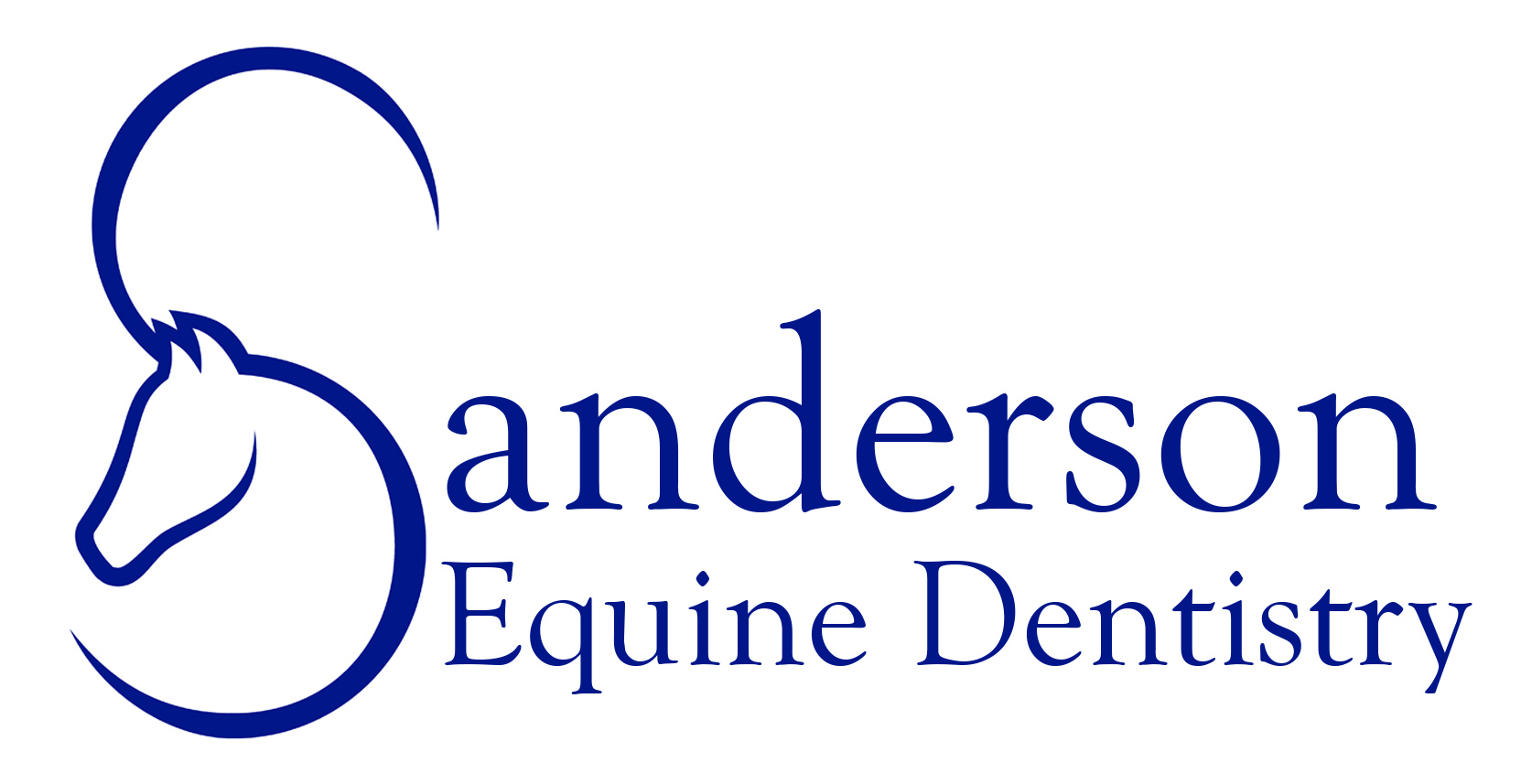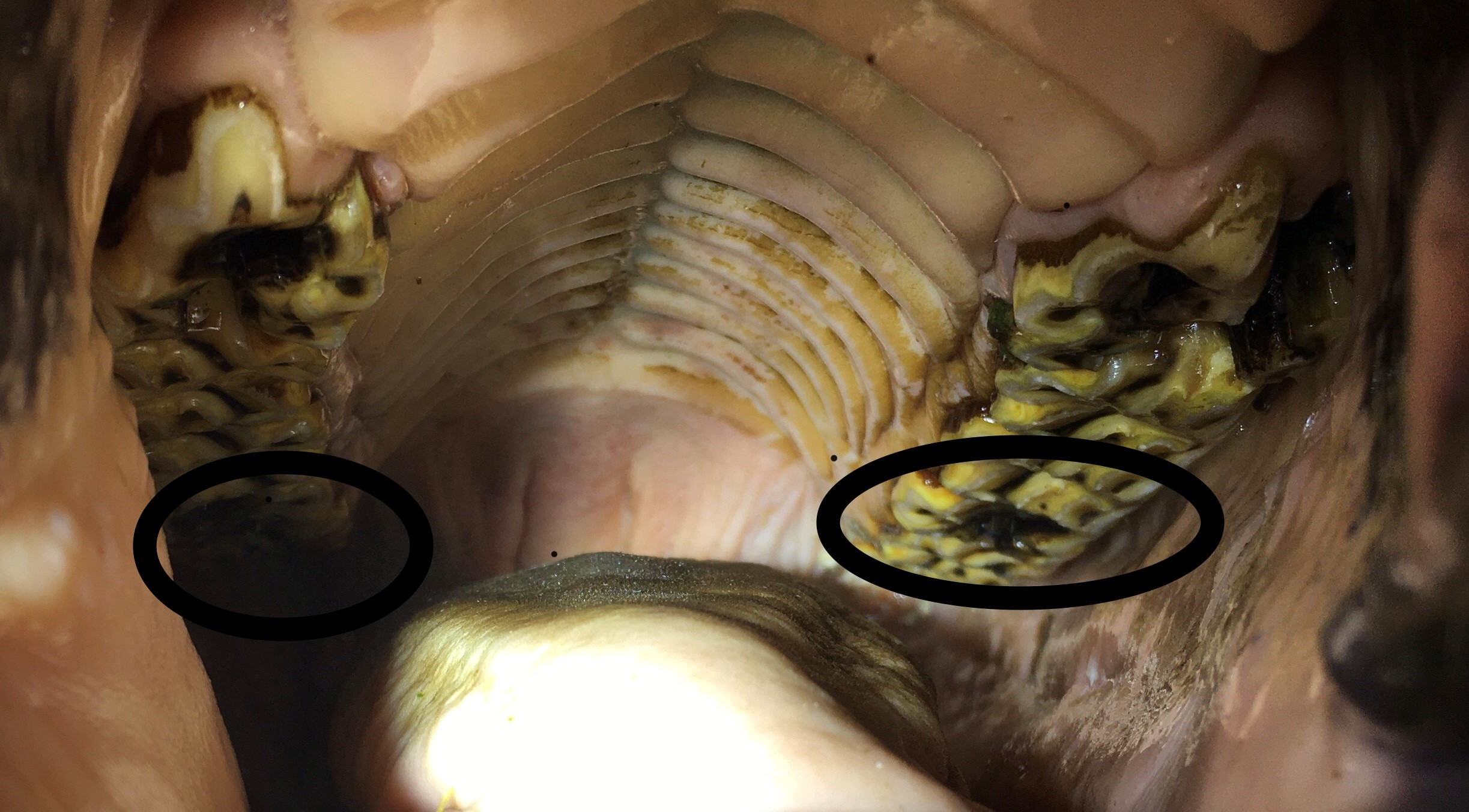Services
Routine Examination and Rasping
A good thorough dental examination is required for most adult horses at least once a year to provide comfort and improve performance.
In some horses with conformational abnormalities or certain pathology they may need more frequent examinations. All examinations need to be carried out with a modern speculum (gag) a good quality light source and mirror.
The sharp enamel points that occur through normal eruption of the teeth will need evaluating and reducing by rasping. I use modern battery powered equipment to do the majority of my work. This allows precision work to be done with less risk of trauma to the horse’s soft tissue.
As a veterinary surgeon I am able to give your horse a light sedation to facilitate good examination and dental treatment.
The benefits of sedation are:
- Safer for handler
- Safer for veterinary surgeon
- Facilitates a more comprehensive and detailed examination
- More precise correction of dental pathologies
- Safer for the horse with regards to iatrogenic trauma
- Less stressful for horse, owner and veterinary surgeon
With this in mind nearly all horses will benefit from some sedation.
As a veterinary surgeon I am able to give your horse a light sedation to facilitate good examination and dental treatment.
The benefits of sedation are:
- Safer for handler
- Safer for veterinary surgeon
- Facilitates a more comprehensive and detailed examination
- More precise correction of dental pathologies
- Safer for the horse with regards to iatrogenic trauma
- Less stressful for horse, owner and veterinary surgeon
With this in mind nearly all horses will benefit from some sedation.
Charting of all horses’ teeth digitally and emailing the records straight to you.
Rostral profiling is carried out for all ridden horses. This is where the sharp angulation of the rostral (front) of the cheek teeth is lightly profiled (rounded) to prevent the bit pushing the cheeks up against these points and causing discomfort.
Oral camera if needed. For any suspected pathology I have a mobile and easy to use oral camera to assess and show the owner the extent of the problems. Photographs can be taken to accompany the records and to monitor progress.
Remedial work, large overgrowths will be reduced in stages, at least 3 months apart.
Wolf teeth extraction, sedation and local anaesthetic is used to allow a pain and stress-free procedure.
Diastema management
Horses have 6 cheek teeth in each arcade. They should be tightly packed together like bricks. If, however they have gaps between them, for various reasons, food material gets trapped.
This food material ferments and decays producing bacteria that causes the gums to get very inflamed and sore (periodontitis).
This often causes the horse discomfort while eating, possibly quidding and losing weight.
Each diastema will be accessed and an appropriate management regime will be implemented. Creating good balance and correcting overgrowths is key, other management techniques may include:
- Flushing and packing
- Partial widening
- Full widening
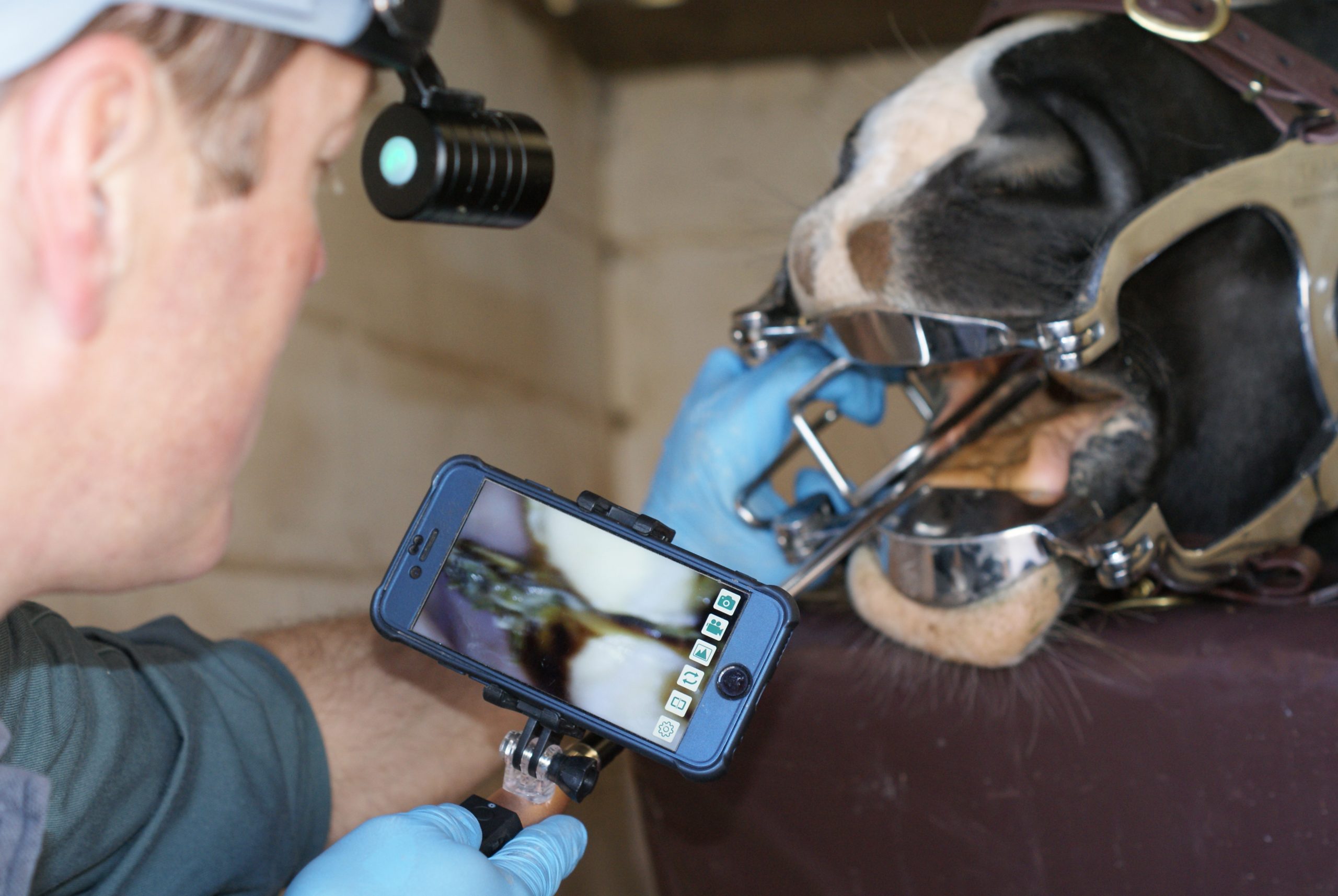
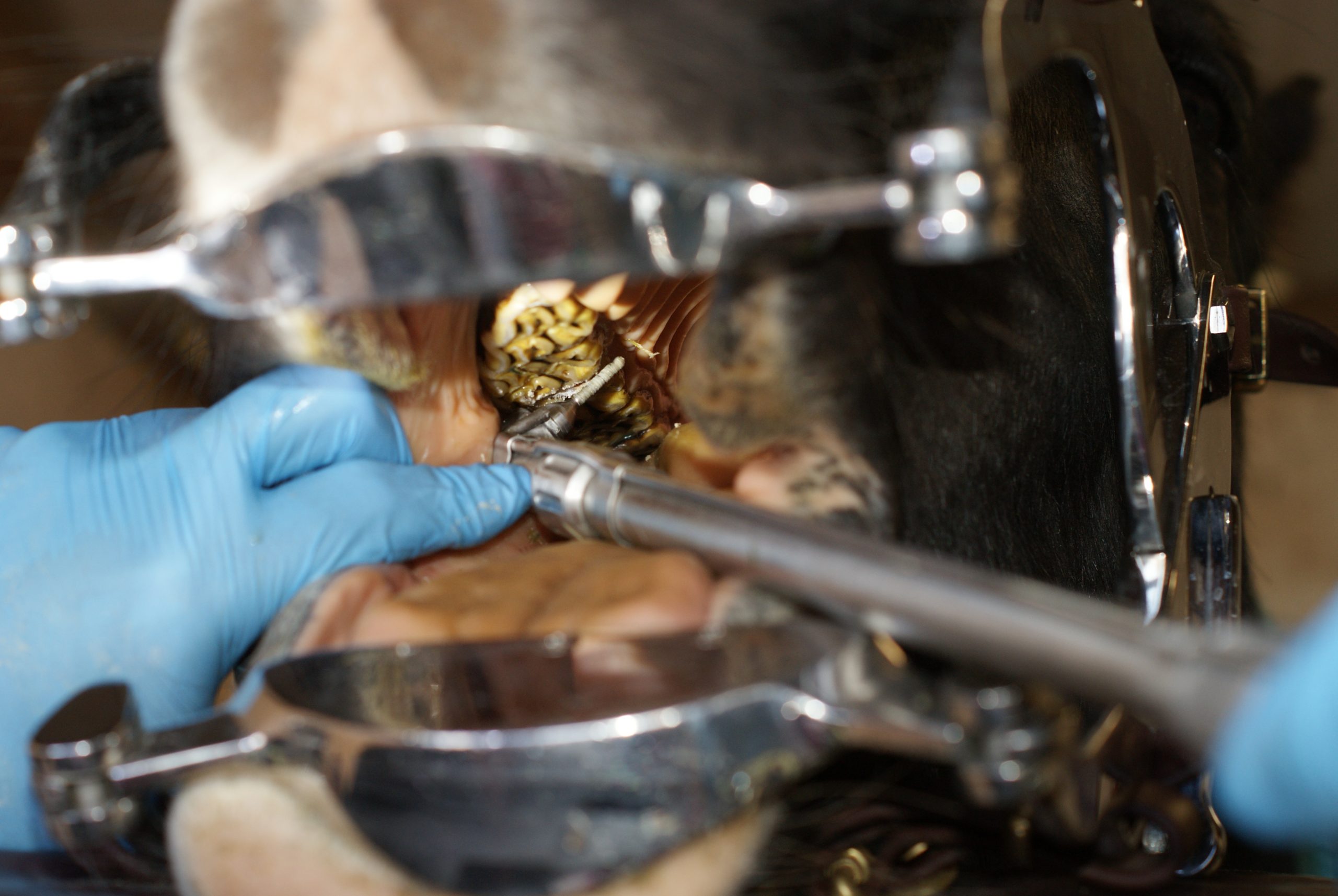
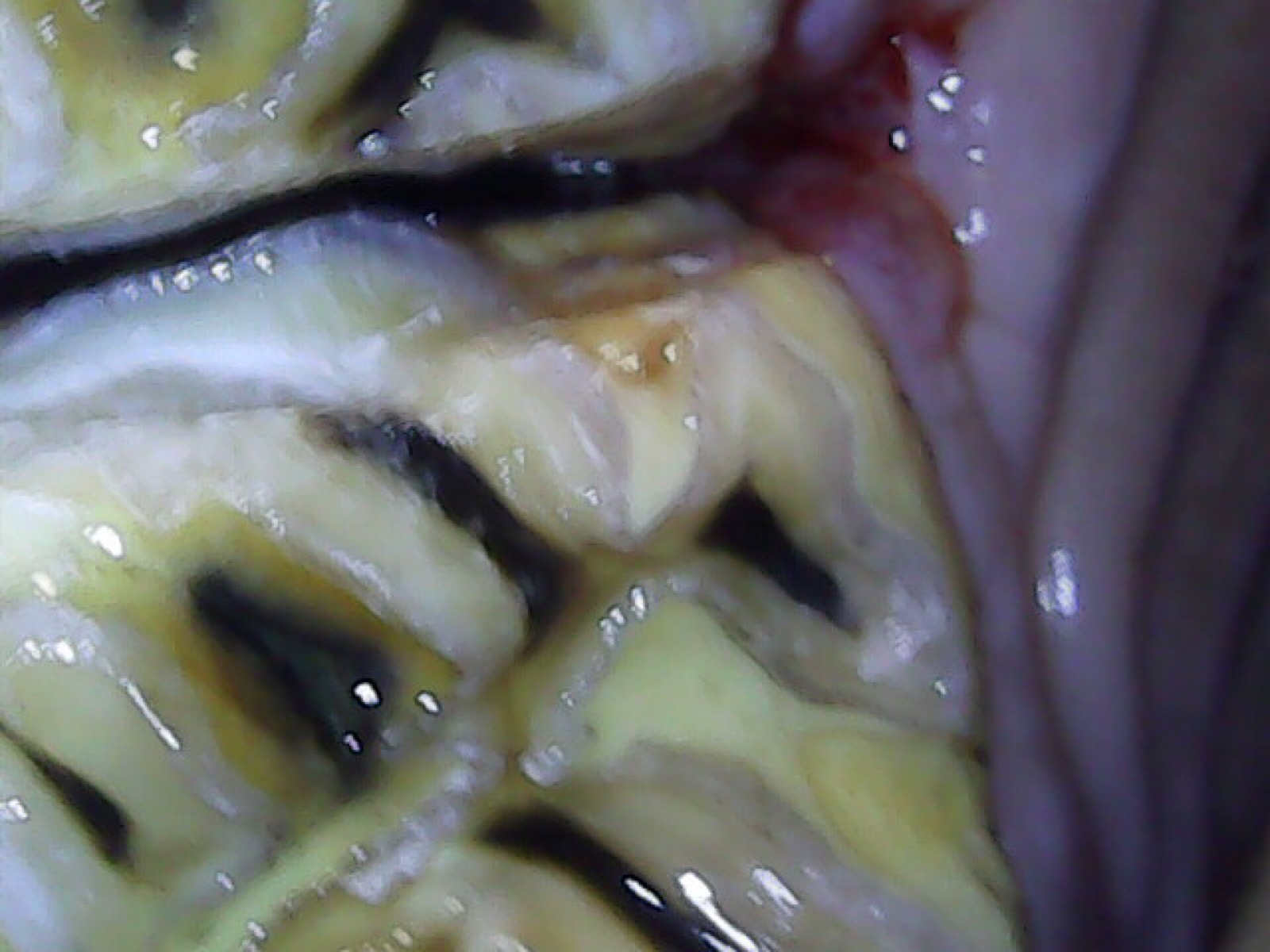
Molar extraction
As a veterinary surgeon I am legally allowed to remove molars that require extraction and have more than ‘minimal gingival attachment’. I will work with your regular vet if x-rays are required.
Depending on the tooth and its pathology many extractions can be done at your stables. Requiring sedation, regional nerve block, elevation, spreading and extraction.
Incisor extraction
Particularly those horses suffering from EOTRH (Equine Odontoclastic Tooth Resorption and Hypercementosis) may need incisors to be extracted.
Any teeth that become loose, have infected tracts or are painful will need removing. This is done under sedation, nerve blocks and local infiltration.
Infundibular caries restoration
This involves removing all decayed dental material and food from the affected infundibular (dental cup). The infundibular is then sterilised before restoring with a flowable dual cured resin composite filling material.
This is a long procedure requiring specialist equipment and training, normally only done in referral equine hospitals. However, with an evaluation of the horses temperament and the yard facilities Mark will often do these on site.
For more information or to book an appointment please call Mark on
07377 418779
or email [email protected]

